LAOT Editors-in-Chief, Anushree Verma and Shravani Shendye interview Abhinav Sekhri and Gautam Bhatia on legal writing. Both Abhinav and Gautam run successful blogs – the Proof of Guilt and Indian Constitutional Law and Philosophy, respectively. Our EICs speak to them regarding their journeys with legal writing and advice for students interested in producing legal scholarship.
You can listen to this interview as an LAOT Podcast. Find other episodes on similar topics here.
Shravani Shendye: Good afternoon, everyone. Anushree and I are the Editors-in-Chief of the Law and Other Things Blog. Today, we have Abhinav Sekhri and Gautam Bhatia joining us for an interview on legal writing and public law scholarship. The rise of legal blogs online that provide substantial editorial support to new writers has led to an influx of law students engaging with and producing new legal scholarship. Both Abhinav and Gautam run two of India’s two most reputed legal blogs and we are speaking to them about their journeys with legal writing, the challenges they have faced in the process and how the legal writing landscape has changed over the past few years.
Anushree Verma: I think our viewers would be aware of both Gautam and Abhinav. Abhinav has done his LLB from NLSIU, Bangalore where he graduated with honours and completed his LLM from Harvard University. After completing his graduate studies, he returned to India to teach and practice criminal law and procedure. Abhinav runs the blog called ‘The Proof Of Guilt’ which discusses the issues of Indian criminal law and procedure in a simple and accessible manner to help create awareness.
Shravani Shendye: Gautam graduated from NLSIU, Bangalore in 2011. Then he completed his BCL and MPhil from the University of Oxford as a Rhoades Scholar and LLM from Yale University on Constitutional Law. He has written both fiction and non-fiction books and successfully runs the Indian Constitutional and Philosophy Blog.
So, we will dive right into the interview. And the first question that we have for both Gautam and Abhinav is regarding their journeys with legal writing, how they started their blogs and their general association with writing and public law scholarship. So over to Abhinav and Gautam.
Abhinav Sekhri: I think I’ll let Gautam take the lead on this one because it’s a much longer journey for him. So over to you.
Gautam Bhatia: You’re basically saying I’m older and ageing! I used to do a bit of legal writing in college – a couple of articles. Back then there was the India Corp Law blog which was the major blog on the scene and they encouraged submissions so I submitted a couple of pieces to them. Law and Other Things also existed but the frequency was a little less. So the main blog was India Corp Law Blog and SpicyIP was sort of just getting off the ground at that time. So these blogs did exist. As far as my own writing goes, I began the Indian Constitutional Law and Philosophy Blog in 2013 and in the summer I mainly as a little bit of a hobby project because I was in between terms, it was the holidays and I was looking for something to occupy my mind and I thought why not just, you know, do a bit of exploration of some ideas in constitutional law that have interested me for a while. So I opened the blog with that idea. Once I began writing, the response to it was something I hadn’t expected which was a very positive response, people were interested and they were reading and they were talking about the blog. So I realised this was something that, you know, could become a sort of space where, you know, could, demystify legal language, engage in certain kinds of discussions and just take the conversation forward. So then it transformed over a year and a bit from a blog where I was just sort of putting out my thoughts on things that interested me to sort of a much more organised effort that would now engage with judgments as they came out, write about contemporary constitutional developments and so on. And over the years it just grew from there. And I think the main thing has just been for me the regularity. I think it’s now been almost 10 years and there would be about 850 odd posts so that comes to something like 2 a week for around nine and a half years. So I think the really important thing about both your own approach to legal writing and creating a space where discussion can be continuing and ongoing is consistency and regularity in the writing. And often it is hard because life intervenes but if you can take the time out and just manage to do it, it can be very good. So that’s in a nutshell the journey I’ve had.
Abhinav Sekhri: I think for me it’s a little bit more of a mixed bag because I’ve had to, for slightly longer than Gautam, I had to balance it with an active practice. So, its origin story wise I guess it is a similar journey, especially in criminal law you don’t really have anything and in fact it was ICLP was a great jumping-off point where you’d see that okay there is this kind of space that has been there for years now thanks to Gautam. And then you look at LAOT which was there when I was in college. But there was nothing doing anything as far as criminal law and procedure itself are concerned. And this was in my first year of practice. And for me, it was always intended to be very practical rather than something where I can discuss stuff that I’m reading and finding interesting. It was always that in my half a year of practice I realised that those aphorisms you have to wipe your slate clean of everything you’ve learnt in law school about how the actual process is working are true to a certain extent. I mean whatever comment that might be on the state of what we learn in law school is a separate issue. But I did find it true and I found that you know, this is a prism from which I am now starting to view things and it may be something that I want to keep doing. And in fact, it was a mixture of I don’t want to become a person who was only looking at it from a practical lens but I also want to keep using the stuff that I’m finding interesting and how I blend the two. So, it was a very selfish endeavour where it was largely to, you know, write for my own pleasure and make myself read which is something that, honestly and I think Gautam will agree with this, it’s something that becomes very difficult as you keep practising – just the will to read something that is outside the narrow scope of your brief for pleasure or for you know interest or just curiosity. So as more and more time gets consumed by your briefs, you know it becomes harder and harder to do that. The reason I started it was this. Over time, I have gained some amount of regularity in terms of what I am doing with it. But I keep flitting back and forth. That selfish side of me kicks in, as I am doing it for my pleasure so I will randomly start things because I want to give myself that reason to do this. But, over time again, where I am right now actually, I am at a place where I am struggling with regularity with more and more practice work. Inviting people to write for the blog and see that take off over the last couple of years has been a real blessing. It’s been really heartening as well because it’s giving me the opportunity to engage with a lot more people and it’s been really rewarding and but at the same time it’s a question of you know what is it that you are doing so through that and I think I’m jumping the gun a bit on further parts of this conversation but you then interact and you figure out not only styles in which you are presenting ideas but also the various ways in which people are trying to communicate the similar idea where on the same topic I might get to know something that I might have written in the past and then 3-4 people might over the course of let’s say a month or two months write something you know on that can you see you know that there are so many various vantage points from which the same issue can be looked at and you know oh all of that is really rewarding. It is a great thing that people are writing so and I mean if the blogs are providing a space for them to keep on writing then so much the better.
Anushree Verma: On that note, what do you think of the basic elements one should look into or like when one just starts writing? So, what do you think are the basic elements one should look into while researching and writing? Or possibly we can start with just choosing a novel topic or any topic of sorts?
Abhinav Sekhri: So, I think one key thing, especially in this conversation, is I think it matters a lot like in your mind what do you writing for and what your audience is. So especially for the blog, you have to keep in mind that at least for the idea of the blog, one of the great things about legal writing on blogs or open-access spaces is that you have a reach of a far wider audience than you otherwise might have reached by way of you know for journal and so you have the freedom to write it in a much more accessible manner with sometimes it’s not something that journals are, I mean, known for because you’re catering to a very different audience and the depths to which you have to get into the idea is very different. And so I think the first thing especially if you are considering writing for a blog is to be very clear about where you are writing and who is your intended audience. And so if you are intending to reach lay persons with that audience you have, you have to keep that in mind, stylistically. I think that also you know is a choice that then affects all the subsequent choices that you make in terms of the topic of choice, in terms of how niche you want to get into a broad-based topic, like how deep do you go into a specific area, or do you want to cover three-four issues, you know in a scattershot but sort of giving someone a flavour of okay these are issues then I’m spotting for you to think about rather than a journal article that still explain to you the doctrinal position and then offer your critique of it or even when your own models for addressing a problem. So for me, I think, thinking about where you want to put your piece is critical and those subsequent choices will then get affected by that initial choice. A great deal of it so. Yeah, that’s that.
Gautam Bhatia: So I will refer from that a bit, for me at least, the purpose of these kinds of blogs, my blogs, Abhinav’s blogs, and a few others works, such as LAOT, is as interventions into ongoing conversations, right so you know there is say, a judgement of the court or there is an issue that is being discussed and the purpose of the blog is to participate in that conversation, deepen it. Bring more perspectives in it, and encourage people to think about the issue from those angles and so on. So, the post and essays that focus on doing that are ones that make the best contributions. So, when I get submissions, there are for example blog posts that go say for example Dworkinian analysis of the Indian constitution, that is really not suitable for a blog. First of all, you can’t fit in dworkinian analysis of the constitution in a blog post of 1200 words and do justice to that topic. Secondly, you know these are things that have by now at least 30 to 40 years of scholarly pedigree and it’s really hard as an undergraduate and even as a graduate student to be able to say something interesting with respect to that and this is not to sort of look down anything because when I was a student, I thought I was doing a great Dworkinian analysis of the Indian constitution except that I now know I wasn’t because it’s just the way it is. If these are the topics that have been covered over 40 years by scholars across the world, then to get to that point where you can say something interesting there, you yourself have to have spent years and years in the field. Those kinds of of topics that undertake a broad philosophical analysis of, in my case, the Constitution, or seek to provide a snapshot of an area, or sort of attempt to say something innovative or new, and it’s also pretty much almost impossible in the field until you have mastered the existing literature so well that you know what is new and what isn’t and that itself is the product of like at least a decade of serious reading. So, I think that temptation is something worth resisting and the focus on, you know, should be on here are the conversations happening right now, lets intervene and let’s contribute to them that that is something quite valuable. And you know most of the guest posts in the blog, on my blog are now posts of that kind. You know for example the ongoing Hijab case is one in which I have received so many, you know, high-quality interventions and I published pretty much all of them because they are good, they take like an existing debate, they intervene, they do it well. They are not revolutionary arguments, they are not things that are new, because we don’t need that. What we do need is, you know, demystification and deepening of the conversation. So as long as they’re doing that, I am very happy to run them and for that discussion to go forward. So I would say that, I will say that that you know, ask yourself where the conversation is you know and how you can contribute and stick to one facet, one aspect of it and then write about it. That for me is what blogging is all about.
Shravani Shendye: Thank you so much for that. A follow-up question to that is, when law students are writing, how do you think they can contribute to legal writing by grounding it in the present context or adding a sociological analysis and then linking it to the legal analysis?
Gautam Bhatia: There is a lot of law and context scholarship. There was this conversation with school-going girls, why they wear hijab and what came out was, you know, there are like fifteen sixteen different reasons why someone want to wear hijab, on the spectrum of you know, the whole agency compulsion choice spectrum – so it could be negotiations in your family, that they wont let you go to the school unless you wear the hijab, could be national identity, it could be you know a sense of solidarity, so you would find a number of reasons, and when you read that, you then realise that the courtroom debate over the agency, choice and compulsion, is impoverished unless you take on both the insights that come from non-legal writing and the writing that sets the context and so you need to have that in mind to inform the legal arguments on it, that is true in a very, sort of basic sense for constitutional law, so I would encourage people to always think about that and to look for writing that deepens that context. It’s also true in a different way for criminal law, and I think that’s where Abhinav might want to comment.
Abhinav Sekhri: I think, and this is something you know I personally keep feeling, where I always look at ICLP getting updated every once in like half a week and I am like, why am I not able to do this or why are people not writing and there is a big reason for that which is like the subject matter domain is so different where frankly, there is that much to say but unfortunately and the way in which I think the Indian criminal process works, all then there is to save is largely only revolves around three things one of them is arrest, one of them is bail and the third is going to be, if you are really lucky, some constitutional issue arising out of how some Court has interpreted, either of those two issues. And so you know in terms of, so which is why, on the process side of things unfortunately there is a really little, beyond that, that is relevant in a contemporary sense that you have people engaging with. But I have been so surprised by law students writing on other procedural issues that they find interesting, so that’s remarkable for me at least because otherwise, I think from a student perspective and I speak for myself as well, you never thought that procedure is where actually the fun is, more interesting than substantive law and like the harm principle and how liability, definitions of murder, those are things that really interested a student is what I felt and I see going back as well. Which is where the contribution then comes in like how like students sort of end up making those contributions, I have found that, usually it will be an area that they have engaged with in law school through either as a virtue of a research subject or something of that nature, and then you know the conversation for me, usually the process is that, it’s a conversation that I have with someone who is writing, that we need to refine it to make it something, that is more palatable as a blog article because, usually I will be on the that end of the stick that is Gautam the Dworkinian analysis of the Constitution, where I be at the that end of the scale as far as you know the, in-depth analysis of an issue is concerned, so, but I am not going to be lucky enough for someone to send me something very soon, and I find the process rewarding where then I engage with, it takes time, it takes around 2-3 weeks for me usually because of my own schedule, but then you do a back and forth, where you try and reduce the complexity of the argument to get, one facet of the argument, literally what Gautam was saying that you have to then focus on that one part. So an essay that you know might be giving you everything on Indian law, everything on comparative law and a critique so I then have to figure out what is it that you want to deal with the most, and I try and restrict it to nudges but sometimes I am a little keen on one thing so I might just take the liberty of saying you know, you may want to do this rather than that and, and you then drive that conversation that way, but ya I mean, more or less I echo exactly what Gautam said on those issues, I think all of that is just a little harder when you are dealing with like, like criminal law, because a) it’s just not that you know, that out there as far as public discourse is concerned barring those two-three issues wherein, the issues are same it’s just that the context keeps changing. In fact, sometimes it’s surprising that the issues are so similar each time, that we don’t want to acknowledge the similarity of them, so, so I guess that makes it a little difficult to navigate at times, so that’s about it. I think Gautam do you disagree with me on how my field is more difficult to navigate sometimes?
Gautam Bhatia: Not at all, not at all. Right, I mean constitutional law is sort of glamorous in ways the criminal law isn’t, so I acknowledge it.
Abhinav Sehkri: Thank you for saying it. I do not have to say it.
Anushree Verma: I think the last question that we have for you is what do you think we can do as a legal writing platform to do better, or just in terms of what can we do to have diverse voices on our platform so as to give more spaces to people?
Abhinav Sekhri: I think Gautam again you have to take the lead on that one.
Gautam Bhatia: Yeah, so the one policy you can have for a long time is that in my blog guidelines I say do not put institutional affiliations in your work when you submit a piece. You know because …
(Abhinav interferes, says I saw that from him and copied that from him by the way…laughs)
It is a basic unconscious bias. Right, if the best will in the world I would still have a bias and then I will try to overcompensate, it will just be a mess. So what I do is that in a guest post, I post it like – This is a piece written by X or just the name of the person and not like this is a post written by X who is an advocate at Y court or a professor at Z University. That’s a step I can take as an individual.
What is actually hard to do as an individual editor and what I think is perhaps more doable when blogs are run by institutions or collectives is to have explicit affirmative action policies where you reach out to people from backgrounds where perhaps there might not have been the same kind of opportunities to engage in writing. The same kind of encouragement and access and so on. The normal axis of class, caste, gender or ability, all those. That is much harder to do as an individual editor because all your spare time is anyway spent on editing, writing and submissions and so on then, it is very hard to also find time to be able to affirmatively increase diversity. That’s a fair lack that is definitely there and I don’t know how I as an individual can address it.
Apart from and this is again one thing that I am careful of that I do not let the writing style determine my choice whether the blog will be accepted or not. Of course, I believe there is something called good writing and something called bad writing. There are issues of clarity, of lucidity, of level of the sentence that make for good writing and that make for bad writing especially in non-fiction or in law. But I do try and see if the idea is coming forth and the idea is a good one then I sort of try to work with the author and make it clearer. So yeah, that’s something I attempt to do and of course if you have an institution that is running it, as you enter into, as you told me few days before (refering to the CEDE-LAOT collaboration), partnerships with other bodies that sort of have mentorship sessions and have a specific space that teaches/features writers that may otherwise have access based issues. So, I think that definitely something that collectives and institutions can do. And I wish it was possible for individuals as well but right now something which is proven to be hard, just 24 hours in the day so yeah.
Abhinav Sekhri: I think Gautam has addressed what are the institutional concerns that are there and I echo his sentiments on all of those.
I think in terms of just the writing part of it and this is really something. There are two things that I have grown biased towards after more time outside of law school. One is I think, actually something that Gautam said earlier that how when we were students we thought that I have made this great contribution in the giving of Dworkinian analysis of the Constitution. And I think that’s a sense that you get especially in the model that is predominant in India and in the US that where the student-run journals are the main means of getting publication. I actually notice it becoming a really toxic environment where student-led reviews are going to be there and often it will be students who will be submitting to those and often the manner in which I saw some type of critique coming about in those peer reviews peers in this regard being fellow students who all…it’s a little surprising. Where I then thought that let’s not take ourselves that seriously and ultimately take a little step back and realize that there is a lot that is there that can be said in terms of any topic. So, that self-awareness I thought sometimes becomes lacking because of how seriously we begin taking ourselves that these student-run journals. I thought that more exposure helps with that and I think unaffiliated legal blogs, SSRNs for that matter and open-access places to write are giving you just an idea that how and what matters that there is a conversation and that you are furthering it rather than the name of the banner where you might find that idea. So I thought that one thing to be a little more conscious of, you know to be aware of the writing. Also just caveating yourself when you are writing that you are not going to be able to know everything that is written and then assuming a tone that assumes that “ivory tower”, “Oh, I have surveyed the land and this is what I have to say after having surveyed everything” is not really the tone that we may want to take but it is the tone that we are sometimes trained to take unconsciously and maybe a little consciously in law school. So I thought that’s again something that may not be that you want to be completely gelled with for the rest of whatever time you want to be writing.
I completely agree with Gautam’s sentiments as far as the institutional issues are concerned. I think as far as possible just access and taking care, I mean, I am going to say it plainly, I do take a look at from where someone has sent it because even though it may not come on the blog, I definitely know it from the e-mail as to who has sent it and it is not that blind a process. So I will take more active interest if it is not from an NLS or NALSAR or a Jindal student for that matter and I am getting a submission from elsewhere, I am a little biased towards that, I have to say that. But, you know there is only so much that an individual can do on a blog that does not manage that many posts. Especially given the timeline crunches, because there are only 24 hours. God I wish, I was not doing so many things outside of this as I have to. (chuckles)
Shravani Shendye: Thank you so much, Abhinav and Gautam for joining us. This has been quite an insightful conversation that is definitely going to help our readers and viewers understand how to go about their legal writing. Thank you again, hope you have a good weekend.
Gautam and Abhinav: Have a great day, Thank You

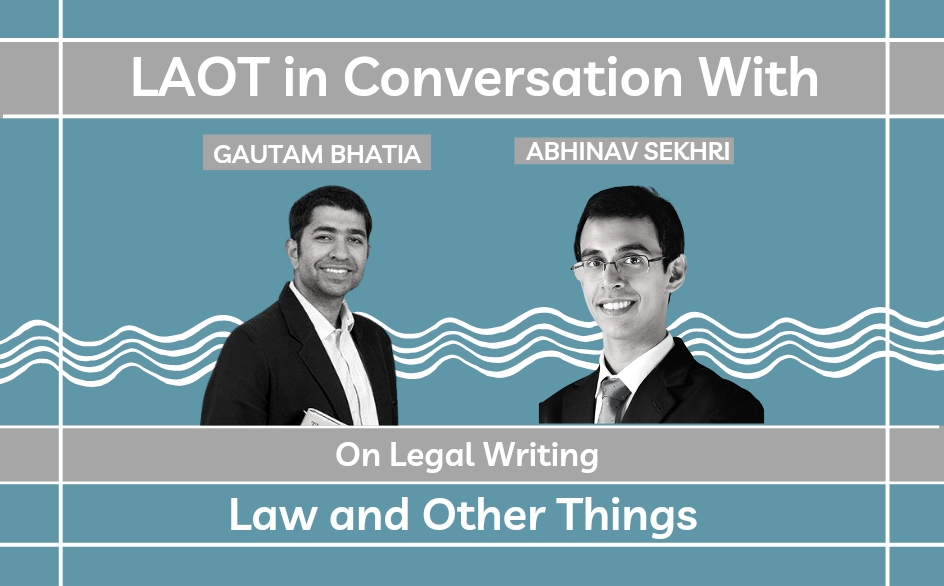
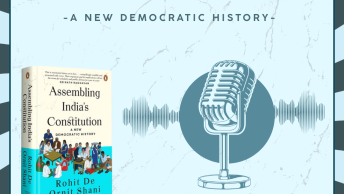
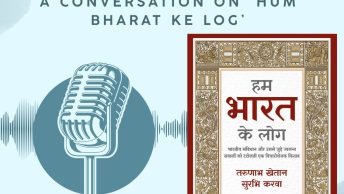
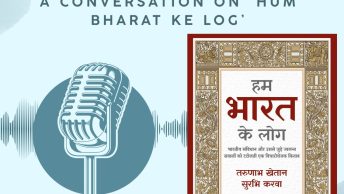
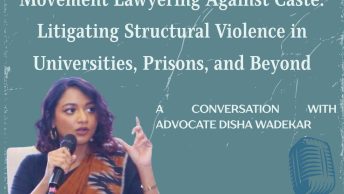
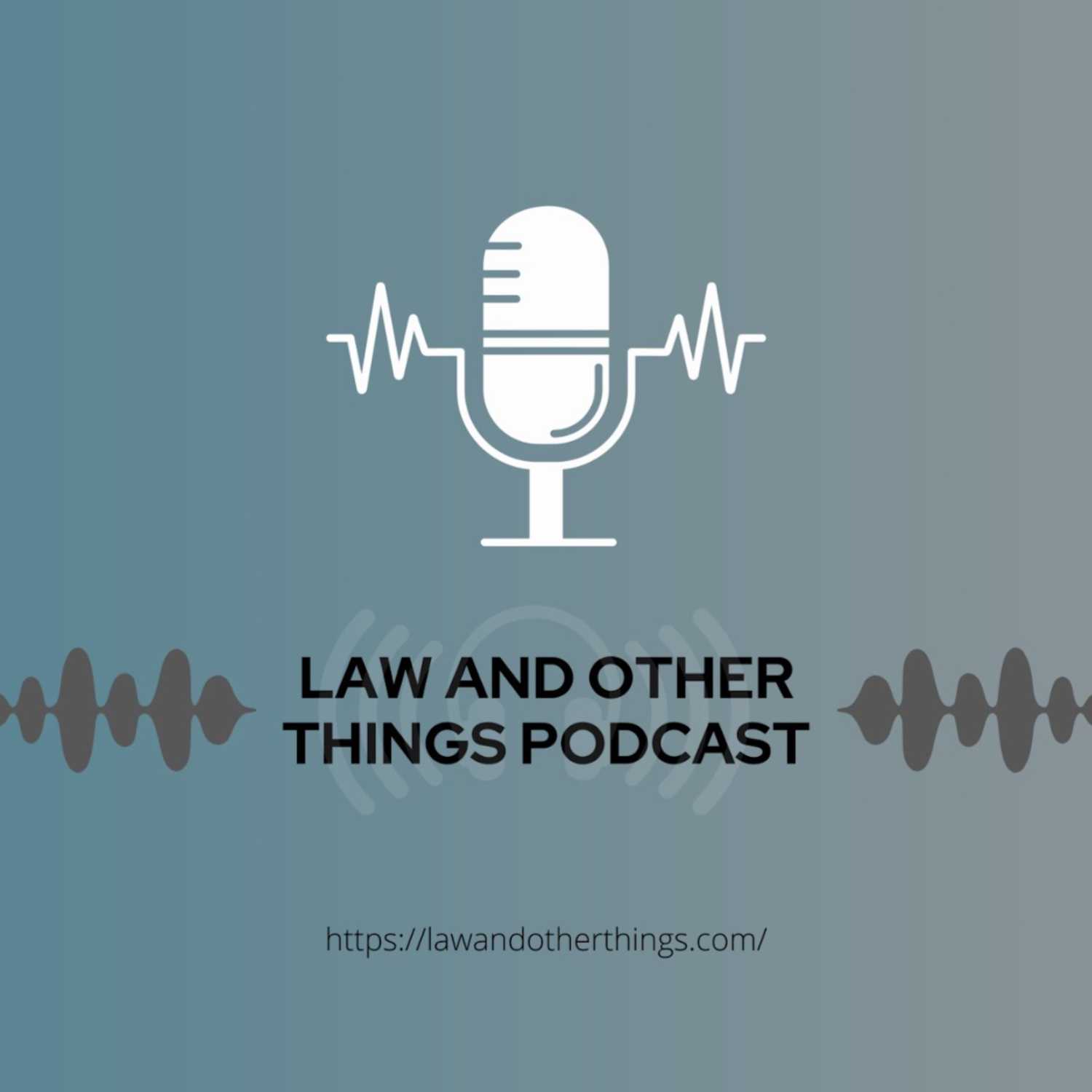
Your article helped me a lot, is there any more related content? Thanks!
Thanks for sharing. I read many of your blog posts, cool, your blog is very good.
Your article helped me a lot, is there any more related content? Thanks!